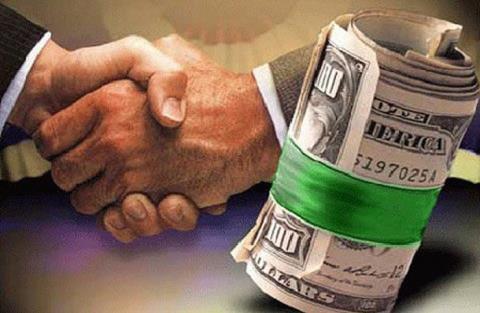 |
|
|
The findings of the survey, conducted with the participation of more than 1,200 firms from March 2-3, were recently released by the commission on the study on the private economic development under the advisory council on administrative procedure reform of the Prime Minister. Three quarters of the firms surveyed are of a small scale, each employing less than 100 workhands.
Up to 98.2 percent of the firms said they are undergoing negative impact of the epidemic, while only 9.2 percent said the impact would be light on them.
It is also noteworthy that 19 percent of the firms said they have found out any measure to sustain the negative impact, while 7.2 percent said they will actively search for new markets, 2.4 percent raise service quality, and 1.7 percent to take this time to retrain their workers.
The survey also finds that the firms totally support and highly value the measures taken by authorities in the fight against the epidemic to ensure safety for the people.
The firms raise three proposals to the government to help them ease the difficulties caused by the epidemic, namely working out exclusive preferential policies for firms heavily affected in terms of taxes, providing concessional loans and reducing loan interests.
MoIT will continue support for businesses after epidemic: Minister
The Ministry of Industry and Trade (MoIT) will continue to support local businesses after the coronavirus epidemic is stamped out, Minister Tran Tuan Anh has said.
Anh made the statement after visits to the Ha Tay Chemical-Weave Co. Ltd. and the Garment 10 Corporation on March 5 in Hanoi to study difficulties at local businesses during the novel coronavirus (COVID-19) epidemic.
If the epidemic is controlled in the second quarter, local businesses should take advantage from Q3 at home and abroad and focus resources to resume their business, he said.
The minister added that the ministry would work to create favourable conditions for local firms.
Since the coronavirus outbreak started, the ministry had evaluated the impacts of the disease on Vietnam's economic and trade activities and had proposed solutions to other Government bodies to help businesses, he said.
During the minsiter’s visit to Garment 10 Corporation, Than Duc Viet, the company's general director, said the corporation’s major products were shirts, suits and trousers. The epidemic had caused a lack of raw material for those products.
This had led to an interruption in production, he said. Therefore, the corporation’s total revenue this year was expected to fall by 10 percent against last year while revenue in the first quarter was also estimated to drop by 10 percent year-on-year.
Nguyen Thanh Tung, general director of the Ha Tay Chemical-Weave Co, Ltd, said his company’s main products were vulcanised shoes with a localisation rate of more than 70 percent, with the remaining raw materials imported mainly from China. The epidemic had forced the company to seek other suppliers at home and abroad.
If the epidemic was prolonged, the firm might run out of material for production, he said.
The minister said, in the long term, Vietnam needed to develop the support industry for the textile, garment, leather and footwear industries. Local enterprises could not depend solely on raw material imports./.VNA

How many ‘crony’ businesses exist?
A VCCI (Vietnam Chamber of Commerce and Industry) report released in late 2019 showed that the privileges to ‘crony’ businesses have decreased, but not enough to ensure equal competition among businesses.

Business searches for confidence upswing
Despite the novel coronavirus outbreak slashing Vietnam’s business confidence, experts are still optimistic for the remainder of 2020.
 If the epidemic of the acute respiratory disease caused by the SARS-CoV-2 (COVID-19) lasts for more than six months, it may cause up to 73.8 percent of the firms to go bankrupt, a recent survey finds.
If the epidemic of the acute respiratory disease caused by the SARS-CoV-2 (COVID-19) lasts for more than six months, it may cause up to 73.8 percent of the firms to go bankrupt, a recent survey finds.